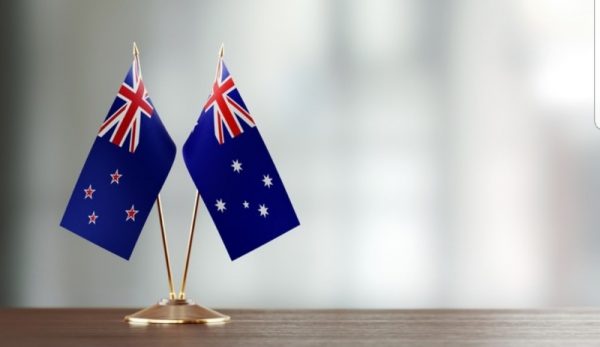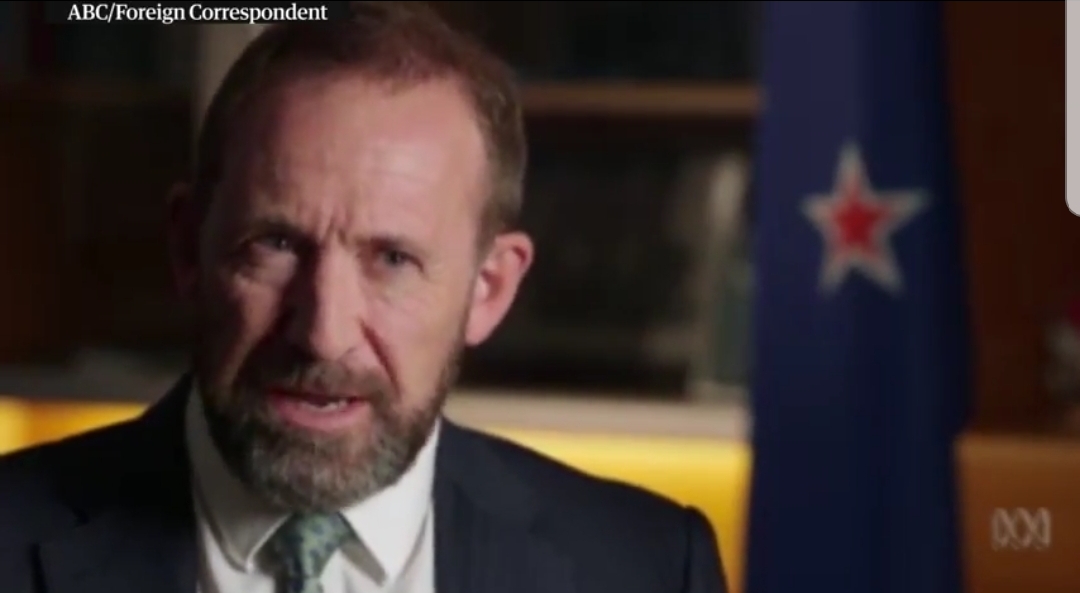Bad neighbours?

Oz Kiwi opinion
'Seasoned Trans-Tasman watchers agree the level of frustration and tit-for-tat rhetoric between the two countries has reached new levels, and demonstrates a pivotal, long-term restructuring of the once unshakeable Anzac alliance.'
We certainly hope that the relationship can be put on a more sustainable footing and strengthened in future.
However, it is certainly true that signs in recent years have been worrying and that the current Australian Government, despite its penchant for invoking the 'Anzac spirit', has increasingly been treating NZ just like any other foreign country.
This is most obvious in an increasingly unilateralist approach by the Australian Government to aspects of the relationship that is completely incompatible with the sort of close relationship that the countries have long maintained.
Bad neighbours? Australia and New Zealand 'not friends' after deportation row
Detention of 17-year-old in adult facility in Melbourne prompts accusation that Australia is not acting like a friend to NZ
20 July 2018
Elenor Ainge Roy - The Guardian
A deepening row over the deportation of New Zealand citizens from Australia has pushed relations between the neighbours to new lows, with politicians in Wellington branding their counterparts in Canberra “venal” and calling into question the long-standing friendship between the two nations.
Australia has deported more than 1,000 New Zealand citizens in the past two years but the recent detention of a 17-year-old New Zealander in an adult detention facility in Melbourne prompted politicians to speak more bluntly than ever before.
Since changes to Australia's Migration Act in 2014, the number of deportations of foreign nationals on character grounds has soared, with New Zealand citizens making up the vast bulk of those removed. Some have been issued with deportation orders despite having no family connections or friends in that country, or anywhere to go.
Earlier this week, the New Zealand justice minister, Andrew Little, told the Australian Broadcasting Corporation that Australia's deportation of New Zealanders had a “venal, political strain” to it, and questioned the country's commitment to humanitarian rights and ideals.
Australia “doesn't look like our best friend, our nearest neighbour”, Little said.
Australia's home affairs minister, Peter Dutton, hit back at the comments on Thursday, suggesting Little should think more carefully before speaking, and reminding the minister of Australia's role in border security.
“I was really disappointed in Mr Little's comments during the week. I hope that he doesn't repeat them,” Dutton told the radio station 2GB.
“There's a lot that we do for New Zealand … We're a big land mass between them and boats coming from Indonesia and south-east Asia … New Zealand don't contribute really anything to the defence effort that we've got where we're trying to surveil boats that might be on their way to New Zealand … We do a lot of the heavy lifting.”
'A long-term shift'
Spats between the Tasman cousins - whose relationship is frequently described as “special” - are not unusual, and differences of opinion occur frequently, especially on matters relating to human rights, asylum seekers and security issues since Jacinda Ardern's Labour coalition government took power late last year.
Australia has also grown increasingly concerned about New Zealand offering “backdoor” entry to its protected borders.
Other sore spots include cuts to welfare benefits for New Zealanders living in Australia and a furore around NZ Labour's involvement in the discovery that the former deputy Australian prime minister Barnaby Joyce was a New Zealand citizen by descent and was ineligible to sit in parliament. The Australian foreign minister, Julie Bishop, said she would find it “very difficult to build trust” with a New Zealand Labour government following the accusations that the party had colluded with the Australian Labor party in an attempt to “bring down” the Turnbull government.
But seasoned Trans-Tasman watchers agree the level of frustration and tit-for-tat rhetoric between the two countries has reached new levels, and demonstrates a pivotal, long-term restructuring of the once unshakeable Anzac alliance.

“I think in 20 years New Zealand won't be any different in status to Singapore, Malaysia, South Africa … it will be a long-term shift,” said Prof John Wanna, the Sir John Bunting chair of public administration and professor of political science at the Australian National University. “New Zealand is becoming less special and Australia is trying to treat it like any other overseas country.
“If you look at Europe and the Brexit situation the political entity is breaking down, and I think there are others that will follow.”
Earlier this month, Winston Peters, who is the acting prime minister while Ardern is on maternity leave, issued the strongest condemnation yet by a New Zealand leader against Australia's detention policies.
“You're a signatory,” Peters said, referring to the UN convention on the rights of the child. “Live up to it”.
Jana von Stein, an associate professor of political science and international relations at the Australian National University, said the strength of the relationship between the two countries could no longer be taken for granted.
“Two years ago I would have told you 'don't worry, there's not going to be a problem, this relationship is strong enough that nothing is going to shake them'. But the world has changed a lot in the last two years and these days I sort of feel like anything goes.”
Read The Guardian article.